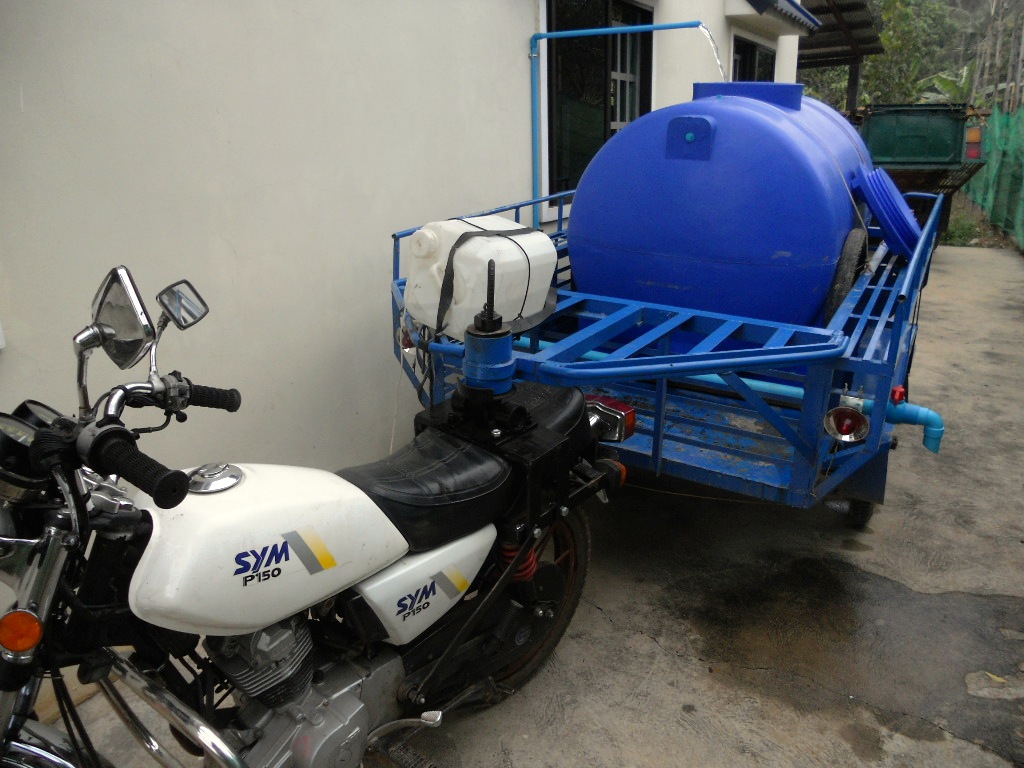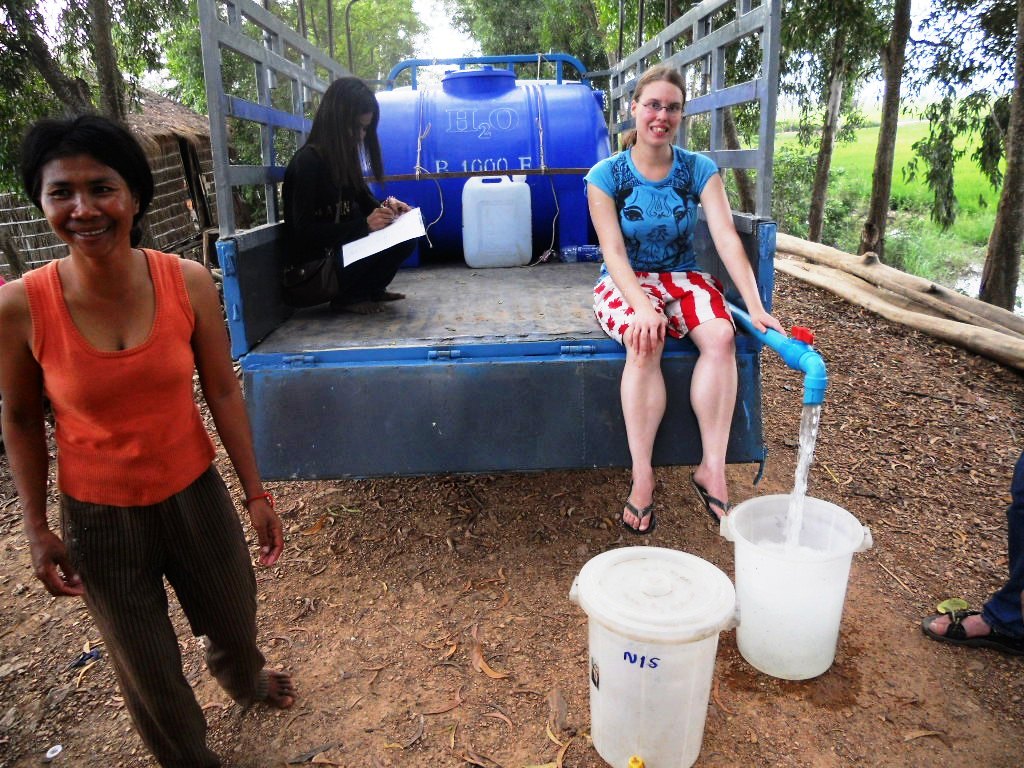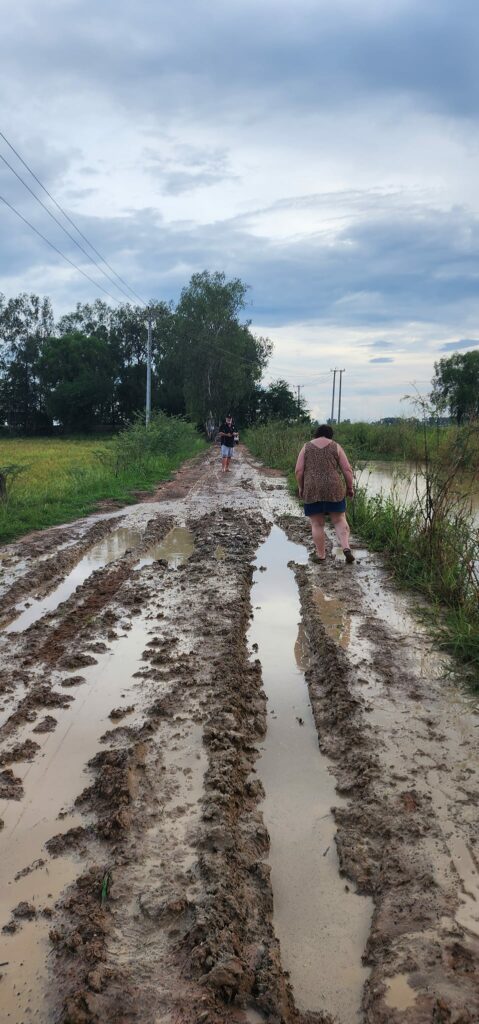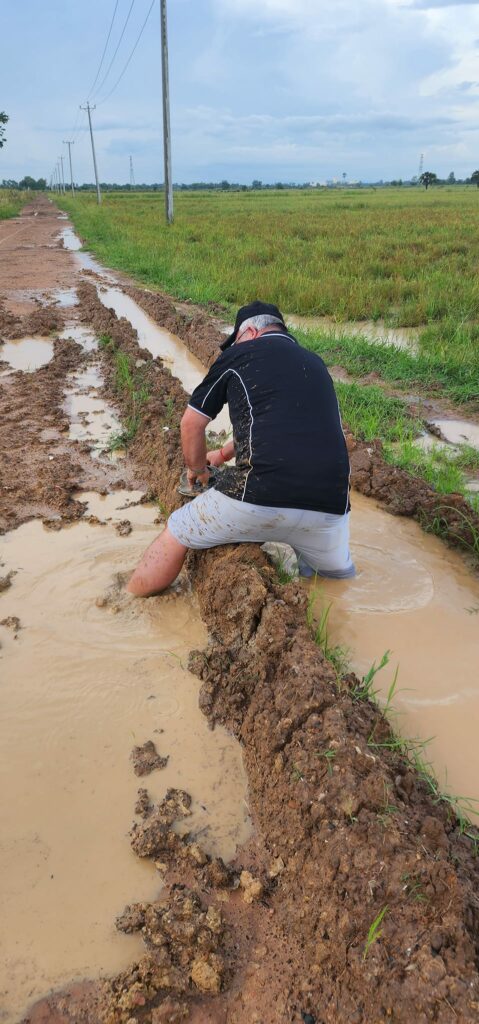Safe Water Deliveries in Cambodia funded by ALCHOCHEM Minerals
Starting in the 1980s, a UNICEF-led safe-water program pioneered Cambodia’s vast network of community tube wells, installing pumps as an easy and inexpensive alternative to bacteria-infested surface water in isolated villages. An independent report commissioned by UNICEF in 2006, however, found that such tube wells installed in arsenic-affected areas were contaminated.
Over the past 25 years, extremely high levels of arsenic have been detected in under ground water in 10 provinces in Cambodia, with the highest concentrations found in Kandal, Kampong Cham and Prey Veng. Once ingested, the cancer-causing toxin can take years to do its lethal work, and experts predict Cambodia has yet to experience the full extent of the poison’s dire health consequences.
The arsenic, a naturally occurring toxin originating from the Himalayan Mountains arrives via the Mekong River to flood low lying provinces in Cambodia. Concentrated, it then comes from the under ground water pumped up by hand-operated pumps called tube wells.
CHOICE Cambodia operate in Kandal province, the tube wells pumping under ground water in the 4 isolated squatter villages assisted by CHOICE all have Arsenic contamination. Since 2012 ALCHOCHEM Minerals a Dutch company, have been covering the cost of delivering safe drinking water to these Villages. CHOICE use safe local town water for deliveries which is connected to the CHOICE Facility, being in the town.
Delivering safe water to these isolated villages is an extremely hard project to manage, CHOICE has made several changes over the years to find the best solutions. Initially we provided containers to each family to fill with the safe water, and had a 1000 Liter tank on the back of a trailer towed by a motorbike.

The containers were a good idea, but the tank, full of water proved too heavy for the motorbike. With the slightest bump on the road the Motor Bike would be raised well off the ground, this was dangerous causing loss of steerage and the driver needed good skills to control it.

Eventually we acquired a truck and trained up a driver, we also used it to transport school children. We mounted the tank in the truck, and the driver would fill up the villagers containers. Over the years we experienced several other problems.
Several accidents with the truck due to the slippery dirt road surfaces to the squatter villages.
Sometimes no access to the villages in wet season.
Drivers leaving for better paid jobs once they had training and a license.
Breakdowns with the truck were common.

Due to development work in the area there are many heavy trucks and heavy farming machinery, the roads have deteriorated and to the point they cannot always be used in wet season. This road to the Villages was a meter under water shortly after these pictures were taken recently.


The good news about wet season is that the squatters collect run off rain water in Urns like this one. They hold about 500 liters so they manage a little better during wet season if we cannot reach them. This water is drinkable but mainly used for bathing.

During the Covid Pandemic our latest truck driver left for a higher paid job, we could not find another person to train and take over driving our truck. This being a continual problem we decided to return to using a trailer and motorbike. We were also short of charity funds so we sold the truck. We collected the containers from the village, brought them to CHOICE and filled them up there. The load was not as heavy and more evenly spread so worked well.

Having closed the school we no longer need a full time driver for students and water deliveries. In order to save money with a driver and as the town water supply and pressure has improved over the years, we have piped town water to the first squatter Village. We have selected 2 families to monitor usage of the 2 free water taps, one at either end of the village. Choice pay the monitors as well as the water bill. The other two squatter villages are on the same road but too far further on for piping water. They have been told they can fill their containers at any time from the taps in the first village. The fourth squatter Village is in a different area and close enough to run water pipes to, but the water pressure from that company is very low. In early 2024 we gave the Village a 3000L s/steel tank which will hopefully fill up over night, again we will pay for the connection and water. ALCHOCHEM Minerals funding will cover this and is very much appreciated.
